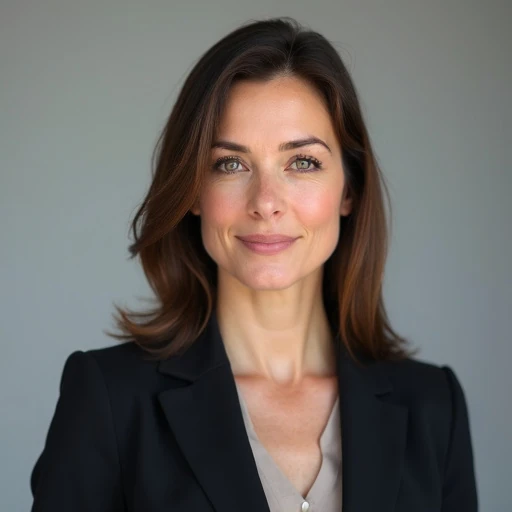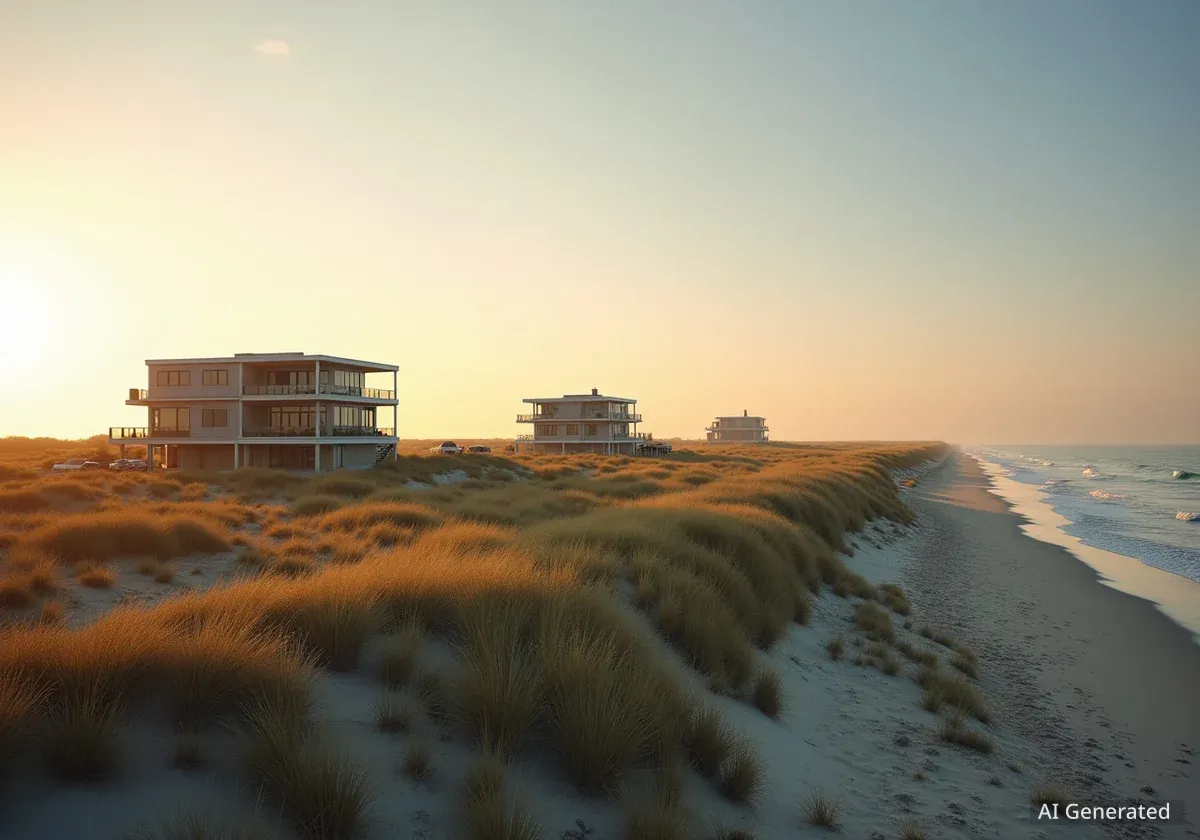Edith Mendelsohn, a real estate agent who recently celebrated her 100th birthday, has witnessed the dramatic transformation of Fire Island's property market firsthand. Over a career spanning more than five decades, she saw properties evolve from affordable summer getaways into multi-million dollar investments, all while building her own portfolio in an era when it was uncommon for women to do so.
From her start in 1969, Mendelsohn experienced the island's unique culture and challenging work environment, providing a rare perspective on the economic and social shifts that have defined this iconic New York destination. Her journey reflects not just the story of a market, but the story of a community's evolution.
Key Takeaways
- Edith Mendelsohn began her real estate career on Fire Island in 1969, initially working as a salesperson in her forties.
- She witnessed property values skyrocket, recalling her first house purchase for $9,000 in a market where million-dollar sales are now common.
- As an investor, Mendelsohn acquired, rented, and sold six or seven properties, creating her own financial independence.
- She believes the core appeal of Fire Island—its unique character as an escape from city life—remains the constant driver of its real estate value.
A Career Forged in a Different Era
Edith Mendelsohn entered the Fire Island real estate scene in 1969, a time vastly different from today's high-stakes market. She began as a salesperson for an agent named Kay Birmingham, working primarily in sales but also handling rentals when they came her way. "I was just in my forties," Mendelsohn recalled. "It was my first actual time working in real estate."
Her territory covered several communities, including Ocean Beach, Summer Club, Robbins Rest, and Ocean Bay Park. She occasionally ventured to Fair Harbor, though with less success. The work was physically demanding in a way modern agents might not recognize.
No Carts, Just Conversation
Unlike many agents today who use golf carts to ferry clients between properties, Mendelsohn had to rely on walking. "We didn’t have golf carts," she explained. "At the very beginning, I only walked. It was hard because you had to get your customers interested enough to walk too." This meant persuading city dwellers, unaccustomed to long walks, to trek to view homes, all while maintaining an engaging conversation with complete strangers.
This hands-on approach required significant physical effort and interpersonal skill. "When I think of keeping a conversation going with perfect strangers, it’s pretty hard to start out not knowing a thing about them and having to hang onto them before they get away," she said. "That’s what was so exhausting."
From Agent to Investor The Growth of a Portfolio
Mendelsohn's involvement in Fire Island real estate extended beyond her role as an agent. She became a savvy investor, recognizing the long-term potential of the island's properties. Over the years, she strategically purchased, rented, and eventually sold a number of homes when their value increased.
"Altogether, I had six or seven of the houses," she stated. This portfolio became the foundation of her financial security and retirement. Her entry point into the market illustrates the incredible appreciation that would follow.
"The first house I bought was $9,000."
This single transaction starkly contrasts with the current market, where entry-level properties are orders of magnitude more expensive. By building her own wealth separate from her husband's income, Mendelsohn carved out a path of financial independence at a time when such opportunities for women were limited. Though she humbly credited her husband's stable earnings, her actions demonstrated sharp business acumen. "I did a lot," she reflected. "When I think about the work, I did a lot."
Later in her career, she also ventured into the hospitality business as a partner in the High Dune Inn, adding another layer to her diverse experience on the island.
The Unbelievable Transformation of Fire Island's Market
When asked what has changed most about Fire Island real estate, Mendelsohn's answer was immediate and clear: the price. The concept of a million-dollar sale was once unimaginable to the island's residents and agents.
"Well, of course, the price is tremendously different from what anybody thought of as ever going to be," she said. "Million-dollar sales were not thoughts people had in their heads when I first started. Now, a million dollars is almost a given."
A Tale of an Oceanfront Lot
A specific anecdote powerfully illustrates this transformation. Mendelsohn recalled the McMorrow house, an oceanfront property that had just been renovated before it was lost to the sea. She later sold the empty lot where the house once stood. "I sold the oceanfront large lot for $20,000," she noted. "Today, that lot would start at a million."
The social fabric of the island's summer community has also shifted. In the 1970s, the "grouper" culture was common, where large groups of people would share a single house for the season. Mendelsohn herself was part of this trend.
"I was a grouper," she admitted. "One of the first houses I had was the McMorrow house out on the ocean. We shared with 13 people – other married couples, our children, and our mother’s helpers." This communal living arrangement stands in contrast to today's rental market, which often caters to shorter, week-long stays for individual families.
The Enduring Allure of an Island Escape
Despite the monumental changes in property values and rental patterns, Mendelsohn believes the fundamental appeal of Fire Island has remained constant. The core driver of the market, in her view, is the deep-seated desire for a true getaway.
"They want to be here," she stated simply. "In those days, everybody was looking for a real place to get away, and Fire Island was unusual and affordable." The feeling of leaving the city behind is a powerful and timeless draw.
She described "the pressure of living and working in the city, and the sense of relief when you get on that ferry." This emotional connection to the island is what has sustained its desirability through decades of change. "Most of us just felt we were one of the lucky ones to have discovered this place," she added.
Even with today's high prices, she sees the island as a solid investment. When asked if a Fire Island property will hold its value, her confidence was unwavering.
"There’s no place else like it."
This uniqueness, she argues, ensures its lasting value. From a historical perspective, she also offered a brief opinion on Robert Moses, the controversial urban planner, suggesting he "missed a real opportunity" by fixating on building a highway through the island instead of pursuing other forms of development.
Mendelsohn's century of life has given her a remarkable vantage point, allowing her to see Fire Island not just as a collection of properties, but as a cherished sanctuary whose fundamental appeal has proven to be its most valuable asset.





